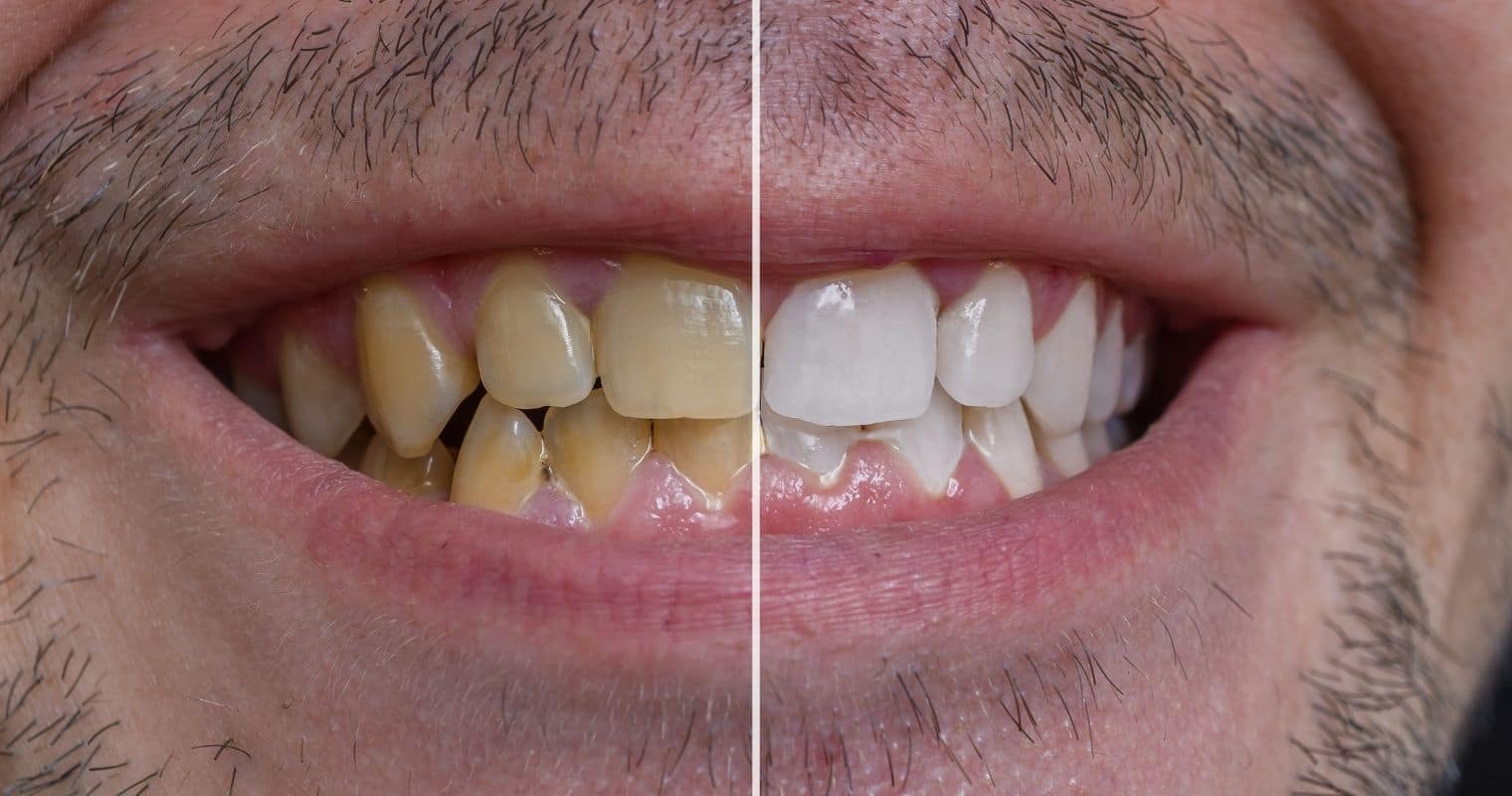6 Early Signs of Gum Disease
Gum disease, specifically periodontitis, poses a major threat to oral health. You might be unknowingly suffering from this condition, as early signs of gum disease can be subtle and often painless.
What is Gum disease?
Gum disease, commonly known as periodontal disease, is a common oral health problem that you should be aware of.
It’s an infection of the tissues that hold your teeth in place, typically caused by poor brushing and flossing habits, which allow plaque—a sticky film of bacteria—to build up on your teeth and harden.
The Two Stages of Gum Disease
Gum disease develops in two stages: gingivitis and periodontitis.
Gingivitis
This is the early stage of gum disease, where the gums become red, swollen, and prone to bleeding. It is primarily caused by the buildup of plaque at the gum line due to inadequate oral hygiene.
However, the good news is that gingivitis is reversible. With good oral health habits, such as brushing twice a day, flossing daily, and regular check-ups with your dentist, you can eliminate plaque and prevent gum disease.
Periodontitis
If gingivitis isn’t treated, it can progress to periodontitis, the more severe form of gum disease. This stage involves the inner layer of the gum and bone pulling away from the teeth to form pockets.
In particular, these tiny spaces between the teeth and gums accumulate debris and may become infected. Over time, these pockets deepen, more gum tissue and bone are destroyed, and the teeth can loosen or even fall out.
Early Signs of Gum Disease
1. Red or Swollen Gums
Firstly, one of the most common signs of gum disease is red or swollen gums. This may be due to plaque buildup at the gumline.
Specifically, the bacteria present in the plaque can make your gums swell and appear redder than usual. If you notice these changes, it’s time to visit your dentist.
2. Bleeding Gums
Moreover, bleeding gums, especially while brushing or flossing, could indicate gum disease.
Even though you might brush this off as an outcome of vigorous cleaning, consistently bleeding gums are not normal and warrant dental attention.
3. Bad Breath
Another warning sign of gum disease is chronic bad breath. Because bacteria and food particles can become trapped under the gumline, it could lead to persistent bad breath.
In fact, if you’ve noticed a continuous bad taste in your mouth, it may also be a sign of periodontitis.
4. Receding Gums
On the other hand, gums may also start receding in the early stages of gum disease. This means that your teeth may appear longer as gums start to pull away from them.
If you start noticing this, it’s advisable to consult a dentist, as receding gums can lead to tooth loss in more advanced stages of gum disease.
5. Sensitive Teeth
One of the other early signs of gum disease is sensitive teeth.
Specifically, as your gums recede, they can expose the roots of your teeth, leading to sensitivity to hot and cold foods and beverages. Consequently, if you’ve recently noticed a spike in tooth sensitivity, this could be an early sign of gum disease.
6. Loose Teeth
Lastly, if your teeth start to feel loose, don’t delay seeing a dentist. Loose teeth could indicate progressing gum disease.
Why You Shouldn’t Ignore Gum Disease
Gum disease is a serious health concern that goes beyond your mouth. Research suggests it may be associated with several health problems, including heart disease, stroke, diabetes, osteoporosis, and cancer.
Therefore, If you notice any of these early signs, it’s important to see a dentist as soon as possible.
Early treatment can help reverse the effects of gum disease and prevent it from progressing to more serious stages. Regular dental check-ups, brushing twice a day, flossing daily, and maintaining a healthy diet are essential steps in preventing gum disease.






